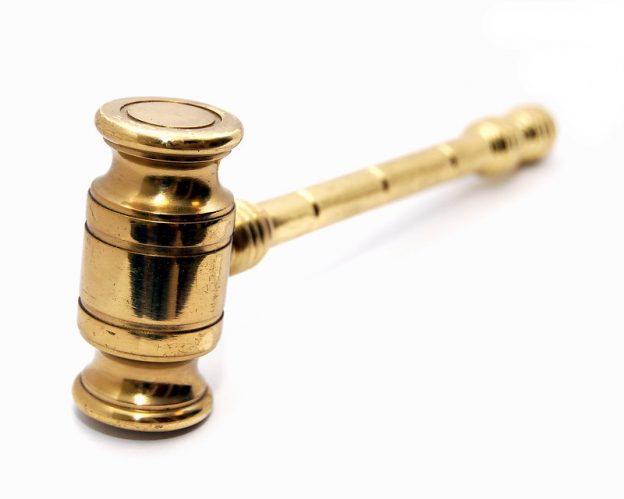Gabriella Coffield – Many have probably heard the phrase “Free Britney” at least once over the past decade from the media. The phrase refers to the ongoing movement to grant Britney Spears autonomy from the conservatorship she has been under since 2008. Under the
conservatorship, Britney’s father, James Spears, had been appointed Britney’s conservator and had broad control over Britney’s finances and business opportunities, including permission by the court to receive a portion of various business deals signed for Britney. Britney criticized her father’s handling of her affairs but faced challenges removing him from the conservatorship until last month, when he was finally suspended from being her conservator. Britney’s public struggle has brought attention to efforts throughout the United States to reform conservatorship laws that can wind up harming the people they are intended to protect, especially when those people are high-earning entertainers.
A conservatorship is an assignment of a guardian by a judge to another adult who cannot care for herself and is unable to manage her own finances. If a judge grants a conservatorship, the conservator takes on the powers assigned under the order for the duration and scope that is granted. For Britney, the arrangement allowed her father to control her estimated $60 million fortune and to negotiate her business opportunities and handle her finances. Aside from the $16,000 per month salary he earned as her conservator, the court also permitted James to receive a portion of various business deals signed for Britney. In 2011, James earned a 2.95% commission on Britney’s Femme Fatale tour. In 2014, he received 1.5% of gross revenues from the performances and merchandising related to Britney’s Las Vegas residency, “Piece of Me,” which earned $138 million over the course of almost 250 shows.
Conservatorships are meant to prioritize the desires of the conservatee and help them regain independence. However, Britney has faced trouble ending her conservatorship despite working consistently for over a decade. Within one year of being judged “unable to care for herself”, Britney guest-starred on television and released a top-selling album. Britney has spent the past thirteen years judging The X Factor, releasing albums, and performing in Las Vegas. Nonetheless, representatives of James Spears argued the conservatorship was still needed to protect Britney from exploitation and harm and that James had been acting out of love for his daughter. But James Spears’s ability to earn more and more profits each time Britney performed suggested a conflict of interest with his role of looking out for Britney’s best interests as her conservator. While the abuse in the control James exerted over Britney’s life and wealth prompted the removal, Britney’s attorney emphasized the serious questions that existed relating to James’ ability to profit from his daughter’s conservatorship, including conflicts of interest and the dissipation of Britney’s fortune.
Britney is not the only celebrity for whom a conservator has been appointed to control her financial and business interests. Those in the entertainment industry are particularly susceptible to the conflicts of interest that can arise under current conservatorship laws. While a conservator is meant to help the individual regain capacity, it is easy to see how money could create a different incentive when there is a considerable ongoing income the conservator is profiting from, giving the conservator a financial stake in the continuation of the conservatorship. The conservator may resist actions that will considerably alter the conservatorship if it leads to a loss in income to the conservator. Britney’s case has brought attention to longstanding concerns from those who have emphasized the possibility for financial abuses of individuals placed under conservatorships. Some argue it is too easy to get someone like Britney into a probate conservatorship and, once the court decides, it becomes very difficult to end the conservatorship as there is no annual expiration or renewal process for the arrangement.
Britney’s battle to end her conservatorship has illuminated the need for reform so that other celebrities and wealthy individuals are less likely to be subject to the same kinds of abuses and conflicts of interest as Britney. Last month, Governor Gavin Newsom signed a law to improve conservatorships in California. The law calls for greater supervision of professional fiduciaries, such as those involved in managing Britney’s financial decisions. Financial abuse in conservatorships may result in $10,000 fines and the law also creates a civil penalty of up to $50,000 when a court concludes a conservator has not acted in the best interest of the conservatee. Britney’s conservatorship has also prompted two members of the House of Representatives to introduce the Freedom and Right to Emancipate from Exploitation Act (“FREE Act”) in July of this year. The bill is aimed to protect people like Britney who are under legal conservatorships. Currently, for a conservator to be replaced, the law requires individuals to prove in court that fraud or abuse has occurred. The FREE Act would grant conservatees the right to ask for their court-appointed private conservator to be replaced with a public conservator with no financial conflicts of interest. The bill would also appoint an independent caseworker to individuals under a conservatorship who would be required to disclose their finances to confirm there is no conflict of interest and allow the caseworker to monitor for signs of abuse. Britney’s case has been a catalyst for reform in conservatorship laws so hopefully those in similar positions as Britney can be protected from the conflicts of interest and financial abuse that can arise under current conservatorship laws.


